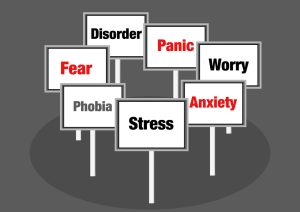Clinical Hypnotherapy plays a role in improving mental health. Those with anxiety, depression, various phobias, or bad habits can all find help with hypnotherapy. Clinical Hypnotherapy is considered an alternative therapy and can supplement ongoing treatments. Most certified hypnotherapists are behavioral and mental healthcare professionals of some level and with certification in Hypnotherapy can offer professional and beneficial care to individuals seeking treatment.

While hypnosis can sometimes be confused with stage hypnosis and a variety of Hollywood misconceptions, true clinical hypnotherapy remains a legitimate and alternative therapy for millions of individuals facing mental road blocks in life. The article, “What Is Hypnotherapy? A Complete Guide to Hypnosis Therapy for Health” by Lauren Bedosky takes a comprehensive and closer look at hypnotherapy. In her article, she looks at how hypnotherapy works and the many issues it can help treat. She states,
“Entertainment media often paints hypnosis as a magic trick where a hypnotist controls a person and puts them into a trance. But hypnosis is not just for fun. In fact, it’s a major component of hypnotherapy, a form of psychological therapy that may help reprogram the mind and is a complementary approach sometimes used to support the treatment of a myriad of health conditions. Let’s dive into what hypnotherapy is, how it works, and its potential risks.”
“What Is Hypnotherapy? A Complete Guide to Hypnosis Therapy for Health”. Lauren Bedosky. May 22nd, 2023. Everyday Health.
To read the entire article, please click here
What is Clinical Hypnotherapy?
Clinical hypnotherapy is a form of therapy that uses hypnosis to help individuals overcome various issues and challenges. During a hypnotherapy session, the individual is guided into a trance-like state where they are more open and receptive to suggestion. This trance-like state is achieved through relaxation techniques and focused attention.
It is important to note that hypnosis is not a form of mind control and individuals cannot be forced to do anything against their will. Hypnosis is simply a tool that can be used to access the subconscious mind and help individuals make positive changes in their lives.
Understanding the Science behind Hypnosis
Hypnosis has been used for centuries, but it wasn’t until the 20th century that researchers began to study the science behind it. Studies have shown that during a hypnotic trance, the brain experiences changes in activity and blood flow. The brainwaves slow down, and the individual enters a state of deep relaxation.
In this state, the subconscious mind is more accessible, and individuals are more open to suggestion. This is why hypnosis can be so effective in helping individuals overcome various issues such as anxiety, phobias, and addictions.
Benefits of Clinical Hypnotherapy
Clinical hypnotherapy can provide a wide range of benefits, including:
1. Overcoming Anxiety and Stress
One of the most common reasons individuals seek out hypnotherapy is to overcome anxiety and stress. Hypnosis can help individuals achieve a state of deep relaxation, which can reduce feelings of anxiety and stress.
2. Breaking Bad Habits
Hypnosis can also be effective in helping individuals break bad habits such as smoking, overeating, and nail-biting. By accessing the subconscious mind, hypnotherapy can help individuals identify the root cause of their habits and make positive changes.
3. Improving Sleep
Hypnosis can also help individuals improve their sleep by reducing feelings of stress and anxiety. By achieving a state of deep relaxation, individuals are more likely to fall asleep and stay asleep throughout the night.
How Clinical Hypnotherapy Works
During a hypnotherapy session, the hypnotherapist will guide the individual into a state of deep relaxation. Once the individual is in a trance-like state, the hypnotherapist will provide suggestions to the subconscious mind.

These suggestions can be tailored to the individual’s specific needs and can help them overcome various issues and challenges. For example, if an individual is trying to quit smoking, the hypnotherapist may suggest that they no longer have a desire to smoke.
Common Misconceptions about Hypnotherapy
There are many misconceptions and myths surrounding hypnotherapy. One of the most common misconceptions is that hypnosis is a form of mind control and that individuals can be forced to do things against their will.
However, this is simply not true. Hypnosis is a tool that can be used to access the subconscious mind, but individuals are always in control and cannot be forced to do anything against their will.
Choosing a Qualified Hypnotherapist
If you are interested in trying hypnotherapy, it is important to choose a qualified and certified hypnotherapist. Look for a hypnotherapist who has completed a formal training program and has experience working with individuals who have similar issues and challenges.
It is also important to choose a hypnotherapist who makes you feel comfortable and at ease. Hypnotherapy is a collaborative process, and it is important to work with someone who you trust and feel comfortable with.
Types of Clinical Hypnotherapy Sessions
There are several different types of clinical hypnotherapy sessions, including:
1. Traditional Hypnotherapy
Traditional hypnotherapy involves guiding the individual into a trance-like state and providing suggestions to the subconscious mind. This type of hypnotherapy can be effective in helping individuals overcome a wide range of issues and challenges.
2. Regression Hypnotherapy
Regression hypnotherapy involves guiding the individual into a trance-like state and taking them back to a specific memory or event from their past. This type of hypnotherapy can be effective in helping individuals overcome trauma and emotional blocks.
3. Parts Therapy
Parts therapy involves guiding the individual into a trance-like state and speaking directly to different parts of their subconscious mind. This type of hypnotherapy can be effective in helping individuals overcome internal conflicts and achieve inner peace.
What to Expect during a Hypnotherapy Session
During a hypnotherapy session, you can expect to be guided into a state of deep relaxation. You will be fully aware of your surroundings and in control at all times. The hypnotherapist will provide suggestions to your subconscious mind, and you may experience a range of sensations such as tingling, warmth, or heaviness.
After the session, you may feel relaxed and calm, and you may notice positive changes in your thoughts and behaviors over time.
Success Stories from Clinical Hypnotherapy

Clinical hypnotherapy has helped countless individuals overcome various issues and challenges. Here are just a few success stories:
1. Overcoming Anxiety
One individual came to me struggling with severe anxiety. Through hypnotherapy, they were able to access the root cause of their anxiety and make positive changes in their life. They now feel more calm and confident in their daily life.
2. Quitting Smoking
Another individual came to me wanting to quit smoking. Through hypnotherapy, they were able to break their addiction and no longer have a desire to smoke. They feel healthier and more energized than ever before.
3. Improving Sleep
Finally, I worked with an individual who had been struggling with insomnia for years. Through hypnotherapy, they were able to achieve a state of deep relaxation and fall asleep more easily. They now wake up feeling refreshed and energized.
Conclusion
Clinical hypnotherapy is a powerful therapeutic technique that can help individuals overcome various issues and challenges. By accessing the subconscious mind, hypnotherapy can help individuals make positive changes in their thoughts and behaviors. If you are interested in trying hypnotherapy, be sure to choose a qualified and certified hypnotherapist who makes you feel comfortable and at ease. With the power of hypnosis, you can transform your life and achieve your goals.
